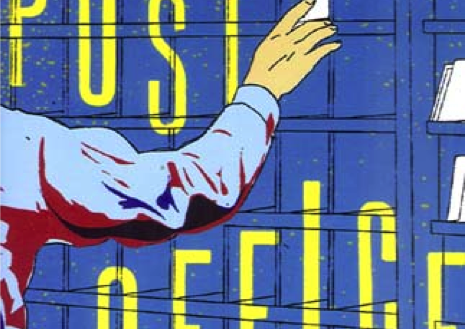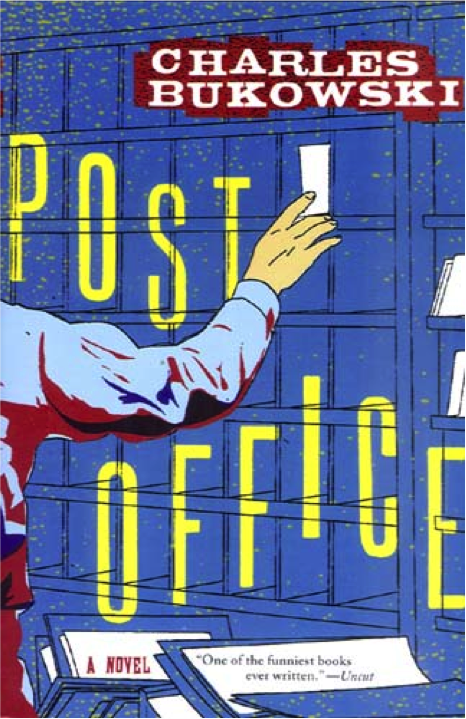
This was a paper for my Theory class but I really do love it so here it is;
The Underrated Slaughter House Five
There are many serious out today that help to keep the world a better place and by better place it is meant that novels like 1984, Fight Club, Harry Potter and other various novels that’s showed a world that was corrupt by hate and some other force. One of the most underrated novels has to be Slaughter House Five. Changed from its original title, The Children Crusade A Duty-dance with Death , this novel goes from everything from war to tid bits of advice as to how humans truly feel and treat one another through alien interactions.
Much like Homer, Kurt Vonnegut “taught the others (poets) to tell untruths in the right way” (110 Aristotle). Talking about war is never a pretty thing and both of these writers were sure to depict a war that was of great importance but the true tragedies were over looked because it was a man's duty to serve and protect his land. For Vonnegut his story described a youth that should not have been apart of any war. Billy was drafted into World War II, a war that is to this day very much a part of our history and a standard stable for movies such as Inglorious Bastards. Many of these stories show the glamorous parts of war but Vonnegut did not such thing “Human beings in there excreting into steel helmets which were passed to the people at the ventilators, who dumped them. Billy was a dumper” (70 Vonnegut). There is nothing glamorous about the truth and this is a very true moment. Many people like to look over this aspect, the aspect that no matter what humans still have to poop. It isn't pretty yet it is something that seems to be over looked. Between these chapters are war are chapters of untruth, Billy being up-ducted by aliens. Vonnegut carefully placed his truths between something that was outrageous, yet his truth was being told in the right way. Or as Vonnegut would say through out the novel “ So it goes” (69 Vonnegut).
Slaughter House Five has been on the banned list for many many decades for various reason. Society doesn't seem to like it when the ideas are given out to the public and if certain people had their way, like Socrates, stories like this would not have been told. This story could have easily “One any account has been written down, you find it all over the place, hobnobbing with completely inappropriate people” (79 Plato). This is pretty much how many parents felt about this novel. The original title was picked for a reason, it was picked because the people that were fighting this was were in their 20's or younger. They were kids, “ We had been foolish virgins in the war, right at the end of childhood” (14 Vonnegut). These stories if not written down would be lost over time. They would change and alternate much like a bad game of telephone and instead of emphasizing the fact that such horrible things were fought by men who never truly got to live, they would be glamorized into being a hero that they truly were not. In the Odyssey, Achilles had even said that he wished he could have been a farmer to live to see his children instead of fighting a war. What he was getting at really is that there is no glory when death has happened. All there is is a memory of the event and the person who fought it. Living a full life and telling the story of it is what keeps society and ideas going. If these things were not written down how would tradition continue? How would our society benefit from the mistakes of others or learn about what they culture was like and what was their ultimate demise? Is it fair to lesson the pain of the people who suffered in war because the ideas can get into the wrong hands if these words are passed down through paper?
Humans are attracted to sad stories, Aristotle had put it best “Tragedy is a representation of a serious, complete action which has magnitude, in embellished speech” (92 Aristotle). Although he was referring to theater, reading stories that have a tragic story line is something that is still looked upon and used very often. Although there are laughs through out much of Vonnegut book, there is still the tragedy of life. Vonnegut goes into detail about the different ways that the members of his platoon had died. Not everyone comes back from war and stories from Homer to Vonnegut do not lie about that reality. Vonnegut and Homer went into a lot of detail about how some of their warriors die. One of Vonnegut characters was shot because he stole a tea pot from someone house after the bombing of Dresden. This is a fact of war, people get shot and killed for little to no reason at all. A life was not worth that tea pot. Not everyone that dies has a heroic death, some of them are foolish and without these accounts, it would only seem like it is a glamorous way to die.
Aside from keeping an account of what war was really like, Vonnegut discussed many of what humans think and feel. Billy was in one of his abduction episodes when the Aliens asked him what kind of question he would like to ask,
“Billy licked his lips, thought a while, inquired at last; 'Why me?'
'That is a very Earthling question to ask, Mr. Pilgrim. Why you?
Why us for that matter? Why anything? Because this moment
simply is. Have you ever seen bugs trapped in amber?'
'Yes.' Billy, in fact, had a paperweight in his office which was a
blob of polished amber with three lady bugs embedded in it.
' Well, here we are, Mr. Pilgrim, trapped in the amber of this moment,
There is no why”
(77 Vonnegut). Many of the ideas that theories have is there is no why there just is. Life just is and this is a strong point that Vonnegut is trying to get through here. This is a recolonization of sorts, “A recognition, as the word itself indicates, a change from ignorance to knowledge, and so to either friendship or enmity, among people defined in relation to good fortune or misfortune” (96 Aristotle). The character becoming more aware and less ignorant as to the fact that life just happens. Nothing ever goes according to plan, war is not planned and death itself is not something one can say will happen at a certain time. This is something that the reader is to recognize in not only the light going off but the fact that as a whole, no human is alone.
As a human it is easy to feel alone, like there is not another person who could possibly understand what one feels, or has been through. Writing is a way for humanity to connect to one another, to feel less isolated. Having writings that date back from Homer who has characters that feel the same sentiment as Billy is important to remember because it reminds us that the human condition is not something that should be faced alone. These feelings are as natural as writing. If the written word were to be eliminated, then the connections humanity has been able to forge through all of its trials and tribulation would be lost. Even seeing some of the same pain through the stories of the bibles can make man seem less small and, Thomas Aquinas had talked about how natural writing was “Poetry makes use of metaphors to produce a representation. But sacred doctrine makes sue of metaphors are both necessary and useful” (181 Aquinas). It does not matter what the story is, the fact that the story is there and someone was able to not only convey their thoughts but gift it to man to connect one another is why stories like Vonnegut time in the war are needed.
Bibliography
Leitch, Vincent B., ed. The Norton Anthology of Theory an Criticism. 2nd ed. New York: W.W. Norton, 2010.
Print.
Vonnegut, Kurt. Slaughterhouse-five, Or, the Children's Crusade: A Duty-dance with Death. New York: Dell,
1988. Print.


